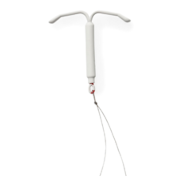Bariatric surgery, birth control, and pregnancy
Considering weight loss surgery? Here’s what you should know about its impact on birth control and pregnancy.

In the last 20 years, obesity has been on the rise in the U.S., including among 18-44-year-old women (with 27% affected as of 2014). Despite the stigma associated with obesity, there’s growing evidence that it’s not something people choose—most obese people have tried many, many strategies to lose weight.
There is one effective strategy for losing weight that is becoming more common, known as bariatric or weight loss surgery. This surgery may affect what birth control will work for you. It can also have negative effects on a pregnancy in the months following the surgery—but in the long term it supports healthier pregnancy. Here’s what you need to know.
What is bariatric surgery?
Looking back over more than 15 years of studies about bariatric surgery, we can say that it is a safe and effective way to help people lose weight. It can also improve other conditions related to excess weight, like type 2 diabetes. There are three common bariatric surgery procedures:
Sleeve gastrectomy and gastric banding are known as “restrictive” because they decrease the size of the stomach and the amount of food needed to feel full.
Gastric bypass makes the stomach smaller and rearranges part of the small intestine to change the way the body absorbs food.
Does bariatric surgery affect what birth control I can use?
Whether or not the surgery affects your birth control options depends on what type of surgery you have.
Gastric bypass, like any other surgery that affects the way you absorb food, also affects how you absorb medications. So oral birth control pills—including combined and progestin-only pills—may be less effective after gastric bypass. That’s why the Centers for Disease Control and Prevention recommend choosing another method after gastric bypass surgery. The patch, the ring, the shot, the implant, and IUDs are all just as effective for people who’ve had this type of surgery. We don’t yet know if gastric bypass surgery affects the way that emergency contraception (EC) pills work, but there is some concern that it may make EC pills less effective. A non-hormonal IUD would still be effective as EC for someone who’s had this surgery.
Sleeve gastrectomy, gastric banding, or other surgeries that only restrict the size of the stomach don’t change the way you absorb medications. That means any birth control method can be effective for you.
What if I want to get pregnant after bariatric surgery?
In the shorter-term: The not-so-good news is that getting pregnant within the first two years after bariatric surgery may put you at risk for other complications. You lose the most weight and at the fastest rate within the first one to two years after bariatric surgery. This might cause some deficiencies in important vitamins and nutrients necessary for the healthy growth of a baby. Some research has shown that babies born less than two years after bariatric surgery are at higher risk of being born small or premature. This is why the leading professional organizations for Obstetrician-Gynecologists and Bariatric Surgeons recommend delaying pregnancy for at least 12-18 months after surgery. That gives a special importance to finding a method of birth control that will work for you during this time.
In the longer-term: The good news is that bariatric surgery can help make you healthier through losing excess weight and improving or curing conditions like high blood pressure and diabetes. Ultimately, those health gains can translate to healthier pregnancy. After bariatric surgery, you are less likely to have: diabetes during pregnancy, high blood pressure during pregnancy, very large babies, and cesarean sections. There’s even some early evidence that those who had trouble getting pregnant due to excess weight may be able to conceive without medical help after bariatric surgery.
Where can I get more information?
If you’re thinking about bariatric surgery, it’s important to talk about these issues with a health care provider. Don’t be shy about asking your bariatric surgeon, primary care doctor, or gynecologist about any of these issues. If you’re currently using birth control and are worried your upcoming bariatric procedure might affect how your birth control works, ask your providers. Similarly, if you think you might want a pregnancy soon after bariatric surgery, let your providers know so they can make plans to take the best care of you and your baby.
How do you feel about this article?

Heat up your weekends with our best sex tips and so much more.

